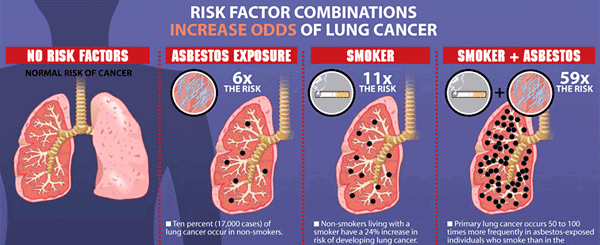Lung Cancer Answers is a website devoted to life issues for lung cancer patients and their families and is sponsored by Brad Cooper* of Cooper, Hart, Leggiero & Whitehead, PLLC. Cooper, Hart, Leggiero & Whitehead is located in The Woodlands, Texas (Greater Houston Area), handles cases nationwide with co-counsel in state of filing, and can be reached toll-free at 1-800-998-9729 for more information on lung cancer. Brad Cooper is not a medical doctor. The information on these pages is for the education of lung cancer patients and their families regarding potential medical and legal options. Patients are advised to consult with a medical doctor.
* Licensed by the Supreme Courts of Texas.
Screening for Lung Cancer
A screening is a test performed to check for a disease before symptoms occur. For example, colonoscopy has become an important screening test for colon cancer in patients age 50 and older. Screening for lung cancer, however, has been a subject of controversy recently.
 An ideal screening test is one that is reasonably inexpensive, can be performed with a minimum amount of discomfort, a maximum amount of safety, and can yield conclusive results. Continuing the example, colonoscopy meets all of these criteria. A chest X-ray would meet most of the first three criteria for lung cancer screening but fails quite often on the fourth criterion.
An ideal screening test is one that is reasonably inexpensive, can be performed with a minimum amount of discomfort, a maximum amount of safety, and can yield conclusive results. Continuing the example, colonoscopy meets all of these criteria. A chest X-ray would meet most of the first three criteria for lung cancer screening but fails quite often on the fourth criterion.
By the time people are 40 years old, both smokers and non-smokers will have abnormalities on their chest X-ray that may or may not be cancer of the lung. These could be scars from previous pneumonia or infection, old trauma, or other age-related changes. While the chest X-ray is cheap, fast, and painless it is not terribly good for diagnosing lung cancer. It does lead the patient to require further testing. This usually means that the patient will be subjected to a number of invasive procedures including even tumor and lung tissue removal.
Most of the time, the abnormalities that are identified by chest X-ray are not cancerous. While this may give the patient peace of mind (until another abnormality arises on chest X-ray), it results in a lot of unnecessary and expensive tests and procedures.
A newer technique that many had hoped would provide a more accurate lung cancer screening tool with fewer false positives is helical computerized tomography or spiral CT. The National Cancer Institute and others are conducting a large trial called the National Lung Screening Trial. Six large centers are participating in this clinical trial comparing low-dose CT with plain chest X-ray in over 50,000 patients. While the study is still ongoing, early results seem to indicate that CT performs no better than chest X-ray. The number of lung abnormalities that are diagnosed as probable cancer but are not actually cancer upon further testing occurs just as often with CT scan as they do with chest X-ray, if not more often.
Currently, there is no lung cancer screening test that can reduce a patient’s chance of dying from lung cancer. However, the active search for effective lung cancer screening tests continues. Learn about a potential blood test for screening.
Read more about:
» Diagnosis of Lung Cancer
If you, or someone you know, has lung cancer and you would like to know if they qualify for additional compensation, please call 1-800-998-9729 for a FREE consultation.

©2025 Cooper, Hart, Leggiero & Whitehead, PLLC. All rights reserved.
